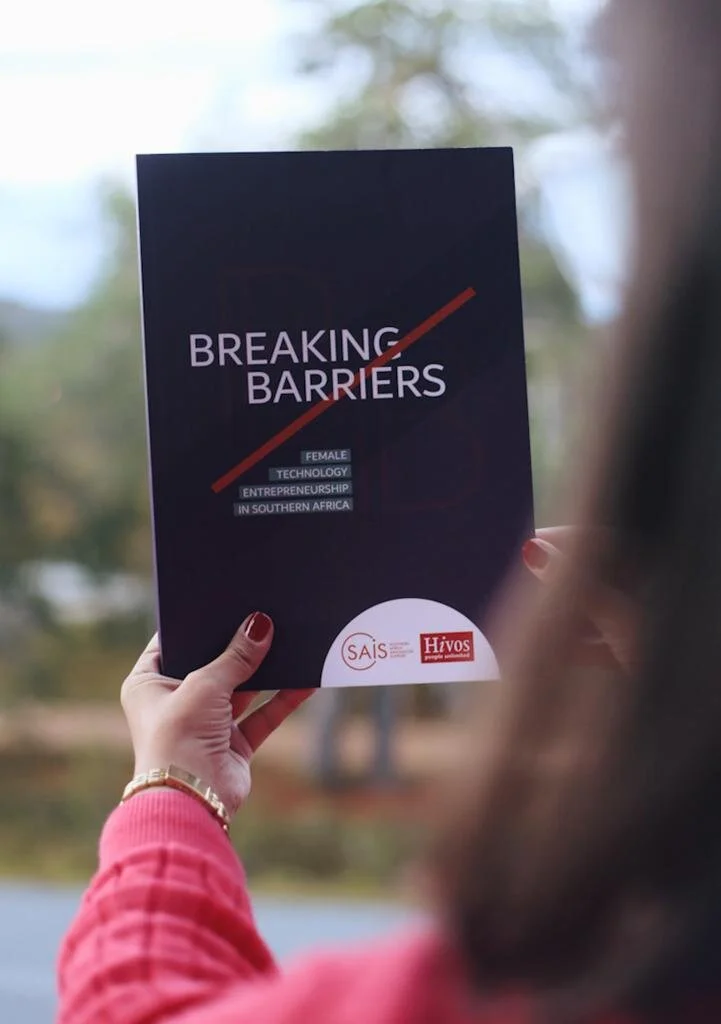Misfits? No, trailblazers.
Back in early 2019, I asked a group of women in Namibia what holds back female entrepreneurs in technology. Lack of confidence, they said, and self-limiting beliefs. And it’s no wonder - the lack of female representation in technology can make any woman in the space think that they don’t belong.
Self-limiting beliefs, while common, feel especially prevalent in countries in southern Africa, where traditional gender roles and cultural norms persist. The other focus groups we organized in South Africa and Zambia echoed the same. The women we interviewed shared stories of being discouraged from pursuing entrepreneurship as it’s considered to be a male venture. And the discouragement starts early - it’s the parent distributing home chores based on gender. It’s the teacher of a woodwork class telling you to take needlework instead, and the Mathematics teacher telling her it’s a waste of time for her to take up an advanced course. It’s understandable if she feels like a misfit.
And it continues through life. To cope, a female entrepreneur in southern Africa comes up with survival techniques. When she realizes clients turn her down for meetings, she makes her male employee call them instead, because clients (especially other women) trust men’s expertise in technology. When people don’t believe her to be the CEO of the company, she introduces herself as the Marketing Director to get her products on the shelf. When she’s the only woman in the room, she quiets her femininity, leaves her heels at home and makes sure her cleavage isn’t disturbing to the men.
But it’s not easy. At a business meeting, the female founder fights off sexual advancement by a male client. She doesn’t feel comfortable attending the networking event after hours at the bar because it’s not perceived proper for a woman to do so. She comes home and not only takes care of her children and the house but also cares for the ailing auntie or helps out with the cousin’s daughter’s homework. At night, she browses Instagram and Youtube for inspirational content, but more often than not, the success stories are of men. And representation matters.
This is why we at SAIS Programme and Hivos Southern Africa needed to write “Breaking Barriers - Female Technology Entrepreneurship in southern Africa”. The anecdotes in this blog are just some of the stories we heard when we scoped the state of women in tech in seven countries. Luckily, there are bold examples of the women who persist due to creativity, resilience and vision. They practice more gender-neutral child-rearing. They divide household chores more equally with their spouses which frees up time for running their business. Still, they struggle with having role models and finding a mentor or advisor for their business. That is why it is critical that the biggest startup event in Africa, SA Innovation Summit, dedicates a whole day for Female Founders. And it is not surprising that the panel discussions at the virtual event end up discussing the self-limiting beliefs women hold.
I was thoroughly inspired when listening to the panel discussion with Walda Nxange (Ngovu Wanawake), Jihan Abass (Lami), Carmelle Cadet (EMTECH) and Titi Akinola (Tony Elumelu Foundation). The trailblazers emphasized the importance of positive self-talk because as a female founder, it can be rare to hear it from the community. Like Ms. Nzanga said, one has to convince herself. ”I have a voice, and it’s loud because I have a story to tell and I bring value.”
It was an honour to represent the Breaking Barriers team in the panel launching the publication with some of the women we featured in it: Nambula Kachumi (WEAC Zambia), Rachel Sibande (mHub Malawi) and Refiloe Matlapeng (Vimosure). Breaking Barriers was well represented across the virtual SA Innovation Summit with features by Future Females, Aisha Pandor (SweepSouth), Pauline Koelbl (ShEquity) and Alexandra Fraser (Fraser Consulting)!
During the launch, we discussed how ecosystems can support women more consciously and what practical things everyone can do for a more supportive environment. If gender equality or economic benefits are not reason enough to do so, based on the study, 74 % of the founders are solving a societal challenge and diversity in technology generates more revenue. Doesn’t Africa need more of precisely these types of companies?
With all the programs coming up to support specifically female entrepreneurs, it is vital to design the initiatives to take into account the diversity of the women, the cultural context in which they run their businesses and how they wish to receive training. The publication elaborates more on all these points.
I will personally be spending the next couple of years researching the cultural suitability of the interventions in developing entrepreneurship ecosystems in southern Africa. But what else should be done? What will you do today?
One small step is to raise awareness in your community of the importance of the female founders. You can do so by watching the panel discussion below, sharing the Breaking Barriers publication to a friend, or even by sharing this blog to your network. You can like the social media page of a female founder. Recommend her business to a friend. Buy her product.
And you can tell her she’s doing a great job at blazing the trail.


